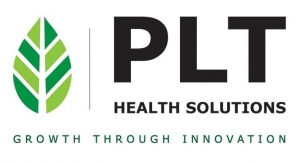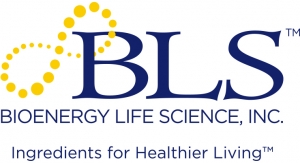By Sean Moloughney, Editor12.04.19
Traditionally, consumers and marketers have focused on brain health at either end of the life span—cognitive development in the pre-natal/early childhood period, and then maintaining mental sharpness and memory in the senior years. Today, brands are targeting people along the rest of the age spectrum as well, offering solutions for a range of health goals that relate to cognitive function and performance.
Defining Demographics
Until recently, consumers in the 18-54 age range have been “underserved,” according to Steve Fink, vice president of marketing, PLT Health Solutions. “Within this group, we see intense interest in issues such as ‘peak performance,’ ‘well-being,’ and ‘quality of life.’ The market opportunity with this group is massive.”
So-called “peak performers” include knowledge workers and students, which Fink said currently make up 40% of the U.S. population, a percentage that is expected to continue growing.
Meanwhile, stress affects 75 million people in this group, Fink added, which has significant implications for other aspects of health.
Similarly, understanding about the wide-ranging impact of cognitive performance in other areas of life has led to a surge in new product development.
Maintaining cognitive performance has become a key concern across all age groups, according to Joyce Cascella, consumer health category manager, Diana Food. “The global aging of the population, in conjunction with the desire to maintain our health and autonomy, are essential market drivers. But the increasing need of the general population to perform well in all aspects of their lives is by far the key driver in this category.”
The market for products designed to support cognitive health has been thriving, she said, as more consumers seek solutions to enhance their everyday living. “Mental capacity is a top health concern across all age groups, diversifying the supplement market with new offerings for mental focus, stress management, restorative sleep, and stamina.”
Alongside memory, cognitive performance includes mental focus in sports, exam performance for students, and stress management for the general population, Cascella noted.
According to Andrew Wheeler, vice president of marketing, Van Drunen Farms/FutureCeuticals, sports nutrition has been driving the rapid extension of the cognitive health market, “as it introduced the idea that improved physical performance is reliant on mental health,” as well as physical health.
Growing interest, from a broad consumer set, in products that deliver preventive benefits and increase overall wellness has shaped new product development and expanded the use of performance-based products, he added. “People from every stage of life are interested in products with a cognitive benefit,” Wheeler said, and each segment has unique needs defined by the demands they face.
For example, seniors are looking for products that maintain and improve quality of life. Students and adults who seek a competitive edge—whether they are gamers, athletes, or lifestyle users—want products that improve concentration and reaction performance, and help prevent mental fatigue. Parents want products for their children that can help establish a solid cognitive foundation, and they look for nutrients that foster that development, Wheeler explained.
Bob Capelli, executive vice president of global marketing, AlgaeHealth, a division of BGG (Beijing Gingko Group), agreed that age-specific health needs have translated to growing interest in the cognitive support market.
For example, baby boomers reaching their golden years are intent to preserve brain health as they age. Meanwhile, intense competition in schools and the need for students to get into top universities has motivated young people to improve focus, concentration, and overall mental potential. And for virtually everyone in the modern, fast-pace workforce, improving performance, managing stress, and preventing burnout are common real world issues.
Still, the largest segment for the cognitive performance market remains aging seniors, said Capelli. “When you’re faced with the prospect of age-related decline in cognition, you’re more than willing to pay for a supplement to prevent
mental deterioration.”
In aging societies, interest in cognitive function is very high, noted Atsushi Yamatsu, general manager for R&D, Pharma Foods International Co., Ltd. “There are still no drugs that have a dramatic effect on dementia, so people are actively trying to incorporate what is effective to maintain cognitive function.” Believing they can take steps throughout the life span to prevent dementia, people of all ages are looking for solutions, he added.
“In our fast-paced society, consumers are looking for both an edge and a way to find peace/calm. Ironically, these two are interconnected,” noted Samantha Ford, business development director, AIDP. “When brain neurons are healthy and functioning properly, one has a better ability to focus and has less cognitive stress. The research community continues to uncover more information on brain functions and what drives a healthy brain.”
Nootropics are not just for the elderly, she added. “Athletes and gamers, business executives, graduate students, and those managing households, while generally younger, are interested in products offering focus and calm, in addition to memory support.”
Elyse Lovett, senior marketing manager, Kyowa Hakko USA, noted that while older consumers looking for age-related memory benefits still drive a good portion of the market, there’s been an emergence over the past 5 years of younger people in need of solutions for focus, attention, and concentration.
Health needs are often unique, Lovett added. For example, young people may seek mental energy, working parents may need help with focus and attention, and boomers may be looking to preserve or boost memory.
Bryan See, business development manager, ExcelVite, observed that demand is rising steadily as consumers become better educated. “In order to keep our brain and mind healthy and alert while we are extending our life span, cognitive health supplements play an important supporting role.” Millennials in particular are more focused on prevention, especially in terms of cognitive health.
What Consumers Want & Need
New and substantive research continues to emerge about supplements that may support cognition, according to Tom Druke, marketing director, Human Nutrition & Health, Balchem, “including a better understanding of which ingredients may help short term and which have lifelong benefits. Given the large body of evidence, consensus is building around some safe and effective options such as DHA and choline.”
While some consumers may be looking for a quick-fix, one segment of the population is taking a very long-term view of supporting cognition: pregnant women, he continued. “The expanding body of published research has identified the life-long cognitive benefits of choline, and the medical community has begun speaking of the importance of choline for brain development and function in-utero and during early childhood,” said Druke. “Many pregnant women find that they just can’t tolerate some foods that may be high in nutritional value during pregnancy, making supplementation a smart decision. Most doctors recommend prenatal vitamins, but most of those are not very comprehensive, making additional supplementation of nutrients like choline essential.”
Expanded use occasions of cognitive support products have the potential to broaden awareness and interest, said Fink. “In sports/active nutrition, formulations are using cognitive ingredients to improve focus and reaction times to improve workouts and overall performance. In weight management, cognitive support ingredients are helping to reduce cravings and make dieting less stressful. In the knowledge worker space, people are turning to cognitive support ingredients to be sharper and learn better.”
As life spans lengthen, healthy aging and mental health concerns are becoming more prevalent, said Wheeler. “People are living longer, and they want to remain cognitively engaged by making brain health a priority throughout their life. Increased interest in healthy aging has illuminated the benefits of early investment in vitamins, minerals, and botanicals that support brain health, and the benefits they provide.”
For better or worse, modern technology has dramatic effects on lifestyle, affecting productivity, but also placing increasing demands on mental bandwidth and time, said Druke. “Technological advances have also expanded our understanding of just how unique we truly are as individuals. Both our genes and our lifestyles play major roles in our nutritional requirements, so what we need may be dramatically different from what someone else needs.”
Although still emerging, the concept of personalized nutrition could be a major development that appeals to consumers and also significantly addresses health concerns, Druke said. “Products that can help people make informed choices about how to tailor their nutrient intakes to their genetic profiles will become increasingly relevant. I believe that the most successful companies will find ways to bundle testing services, personal health evaluations, and customized nutrient combinations into a convenient personalized product solution.” This blend of technology, science, and innovation will appeal to consumers who want to optimize their nutrition for improved mental and physical well-being.
Ingredients like folate and choline are likely to be on the leading edge of nutritional solutions, Druke added, “because both are critical to one-carbon metabolism, a part of the metabolic cycle that regulates gene expression and helps keep the body in balance. Scientists already know a great deal about single nucleotide polymorphisms (genetic misspellings) in this cycle, such as mutations in the methylenetetrahydrofolate reductase (MTHFR) and phosphatidylethanolamine N-methyltransferase (PEMT) pathways that can significantly increase the need for folate and choline. Knowing your specific needs can help you tailor a custom solution to fill nutritional gaps and provide much-needed peace of mind.”
According to Capelli, effective antioxidant and anti-inflammatory supplements that can cross the blood-brain barrier and protect the brain from reactive oxygen species and silent inflammation is critical for maintaining cognitive function, particularly in middle age and beyond. “We’re subjected to unprecedented levels of oxidation and inflammation in modern life that our grandparents never experienced with the increase in pollution, chemicals in our diet, and the higher levels of stress in daily life.
Simply eating a healthy diet and exercising isn’t enough anymore, he continued. “We need additional antioxidant and anti-inflammatory protection living in today’s world that only a supplement or functional food can deliver.”
In terms of product development, formulations should address nutrient needs, offer functional benefit, and fit seamlessly within a person’s daily regimen, according to Ford. “For instance, the entire customer experience is a big focus for the younger generations. Products with a unique delivery format that taste good and offer better-for-you ingredients are much more appealing than, for instance, a bottle of bulky tablets. For athletes and those with an on-the-go lifestyle, convenient packaging and easy grab-and-go solutions are the way to go.”
See agreed that millennials are interested in “non-conventional and non-pill delivery dosage forms” for their supplements. “We are seeing increasingly diverse delivery formats in the market to meet demand. These products could be in the form of gummies or ready-to-drink products.”
Younger consumers also want scientifically-substantiated ingredients, support companies that share their values, and prefer products with simple ingredient lists, See added.
Products that contain third-party certifications are often viewed as safer and healthier too. “Companies must therefore do more to ensure their business and products carry consistent messages that meet these demands.”
Ingredients & Research
The cognitive health market is unique in that it comprises a number of different target benefits—all of which interact and support one another, said Fink. And compared to a category like weight management, it can be challenging to support health claims. “At the same time, we know it is extremely important to consumers, so we are constantly looking to develop new ways to develop relevant science.”
For example, several years ago, PLT Health Solutions and HG&H Pharmaceuticals Pty. Ltd. announced the publication of a clinical trial that used functional Magnetic Resonance Imaging (fMRI) technology to study the effects of acute (short term) supplementation with Zembrin on the “threat circuitry” of the human brain.
The double-blind placebo-controlled crossover trial conducted with 16 healthy university students showed that 25 mg of the patented and standardized extract of Sceletium tortuosum reduced anxiety-related activity of the amygdala and its associated anxiety circuitry within 2 hours of administration. “These results provide the first evidence for the areas of the brain where Zembrin’s anti-anxiety activity acts, and confirmation of the potential for Zembrin to help in the management of stress,” said Fink. “Two additional clinical studies, which apply another technology, electroencephalography (EEG) to demonstrating the effectiveness of this ingredient in cognitive health (specifically, stress reduction) have been published. We are looking at both longer term (chronic) and shorter term (acute) applications of these ingredients.”
Meanwhile, the company also offers Zynamite, a patented, proprietary Mangifera indica extract standardized to ≥ 60% mangiferin developed from sustainably harvested mango leaves. “The primary areas of application are in cognitive health products where it provides mental energy, and in active/sports nutrition products where it has been demonstrated to improve both peak power output and mean power output in fatigued and exhausted subjects,” said Fink.
In 2017, PLT introduced a line of zumXR Targeted Release Caffeine ingredients. These included Extended Release, Delayed Release, and Liquid Stable Extended Release versions. All zümXR ingredients feature delivery system technology drawn from the pharmaceutical industry that represents a significant step forward from conventional caffeine coating technologies, Fink said.
According to Wheeler, there is a growing body of published research supporting the influence natural antioxidants have on helping counteract the negative effects of oxidative stress within the human body by protecting and enhancing key enzymes, proteins, and biomarkers linked to improved cognitive function. “Brain Derived Neurotrophic Factor (BDNF), for example, is a protein that plays a critical role in neuronal health. The health, vitality, and perhaps most importantly, functionality of each one of your brain cells is closely influenced by BDNF. The expression of this protein can decrease from stress and the natural effects of aging; however, natural antioxidants have been shown to protect and enhance BDNF within the human body.”
Also, new research points to the gut-brain axis, the chemical and physical connection between the digestive and nervous systems, as key to understanding and improving brain function, he continued. “The role of the gut-brain axis is to manage gut functions while simultaneously managing emotional and cognitive centers of the brain.”
Research demonstrates that altering the types of bacteria in the gut may make it possible to improve brain function. “More research is needed to determine how prebiotics and probiotics, or ‘psychobiotics,’ may work with the brain-gut axis, but that is an innovative area that will be hot in the coming year, and how polyphenols from coffee fruit extract increase BDNF, a neuroprotein central to cognitive function,” said Wheeler.
Consumer interest in botanical ingredients and ancient herbal remedies has prompted more product launches containing “rediscovered botanicals,” he added. “The product benefits range from stress relief to focus to improved mood, all offering cognitive support. For example, NeuroFactor, derived from whole coffee fruit and not just the bean, is a natural botanical that has been clinically shown to increase levels of BDNF.”
Omega-3s and polyunsaturated fatty acids (PUFAs) are leading the market for brain health in addition to traditional botanical ingredients like ginseng and bacopa, said Cascella. “Polyphenols, and more specifically flavonoids, with their strong scientific support, natural origin, and well-documented safety, are the rising stars in the world of cognitive health ingredients.”
Cerebelle is Diana Food’s proprietary, synergistic combination of blueberry and grape extracts that is supported by pre-clinical and clinical studies that highlight its efficacy and mechanism of action.
A clinical study, published in the Journals of Gerontology by researchers from the Canada-based Institute of Nutrition and Functional Foods (INAF) and the University of Bordeaux, France, showed that Cerebelle improved the memory of healthy older adults. Using a bicentric, randomized, double-blind, placebo-controlled model, 215 healthy subjects from 60 to 70 years of age received either a placebo or 600 mg/d of Cerebelle for 24 weeks. Subjects in both groups performed a series of cognitive tests designed to assess visuospatial learning and episodic memory (Paired Associate Learning, PAL), verbal episodic and recognition memory (VRM) and working memory (SSP). Supplementation with Cerebelle improved VRM free recall across the whole cohort.
Within the subgroup with mild cognitive impairment at baseline, 6-month supplementation with Cerebelle showed an improvement in both PAL and VRM. These results infer that Cerebelle improves verbal memory in healthy older people, Cascella said. The study also demonstrated that Cerebelle improves visuospatial memory—or the ability to recall previous events, emotions, and places—in healthy senior people with a lower level of memory performance at baseline.
Overall, Lovett noted an uptick in the quantity and quality of research evaluating brain health ingredients in recent years.
“Kyowa Hakko manufactures Cognizin the branded form of citicoline. Cognizin has been studied in healthy populations to support focus, attention, memory, and mental energy. Cognizin is made from an innovative fermentation process to yield high quality and purity. It can really be used in any delivery form because of its great solubility and stability profile,” she said.
The brain naturally undergoes gradual structural and functional changes with age, even in the absence of neurodegenerative diseases, noted Ford. “Shrinking brain volume begins after age 25 when brain growth peaks. Research suggests this shrinkage equates to roughly 5% per decade after 40 years of age, which accelerates to an even greater degree after age 70. As the brain ages, it loses efficiency due to loss of neurons and reduced synaptic density and plasticity. The result is declining cognitive function over time.”
However, science suggests that “brain age” can be reversed to a degree, with proper lifestyle measures, Ford continued. “Adequate sleep, stress management techniques, a balanced, nutrient-rich diet, and exercise are just a few examples. Communication between brain cells is mediated by certain cofactors that are nutrient-dependent—magnesium being one of those nutrients. Even a slight insufficiency can impact the strength and efficiency of communication between brain cells.”
AIDP’s Magtein (Magnesium L-threonate), is a patented compound discovered by MIT scientists supported by several published studies detailing its mechanism of action and cognitive function benefits.
A 12-week randomized, double-blind, placebo-controlled human clinical study published in the Journal of Alzheimer’s Disease in 2016 evaluated the effect of Magtein on cognitive ability in four major domains: executive function, working memory, attention, and episodic memory. Significant improvements were observed in each of these domains and Magtein was shown to reduce brain age by 9 years, Ford said.
BacoMind (derived from Bacopa monnieri) is a patented phytochemical extract shown to support learning and memory in adults and children and also improve memory acquisition and retention in the elderly.
Common challenges in sourcing Bacopa have included contaminants and pesticides, and lack of a sustainable supply chain, Ford noted. “Natural Remedies solved those problems by selecting specific farms with ideal conditions for cultivation, training farmers on safe and sustainable methods to cultivate Bacopa as a pure single crop, and free from contamination with regular quality checks.”
According to Capelli, science has evolved to offer some new ways to measure cognitive performance. “In our recent clinical trial, we used Cognitrax, which is a computerized testing system to monitor and measure brain performance. Using Cognitrax before and after a supplementation period in a clinical trial is an excellent way to look for trends for memory and overall cognitive performance. Fortunately, our AstaZine Natural Astaxanthin performed very well for memory and cognition in a group of healthy subjects who were experiencing age-related forgetfulness.”
Two peer-reviewed clinical trials published in 2019 showed extremely different brain health effects for AstaZine Natural Astaxanthin, according to Capelli. “The one we did in Japan on healthy people with age-related forgetfulness showed improvement of 22% in memory and a 48% increase in reasoning using the Cognitrax computerized testing system over 12 weeks of supplementation. And in a subjective test—answering a question about remembering people’s names and the names of things—there was a 25% improvement. That’s a serious result for a supplement in just three months.”
The other study conducted in the U.S. showed, after 8 weeks, feelings of depression decreased by 57% and mental fatigue decreased by 36%, while overall “global mood state” (psychological well-being) improved by 11%. “So with these two studies, we’ve covered a lot of ground to show that AstaZine can help two distinct areas of brain health—cognition and psychological well-being,” Capelli concluded.
Recent research suggests the benefits of choline may be trans-generational. In January of 2019, researchers at Arizona State University’s ASU-Banner Neurodegenerative Disease Research Center conducted a novel experiment examining the effects of choline supplementation as a dietary intervention to help protect against dementia and cognitive decline (Molecular Psychiatry, 2019).
Using mice that were prone to display symptoms similar to Alzheimer’s disease, the researchers fed a control group a normal choline diet while pregnant and lactating. The mice born of these pregnancies were then fed a normal diet and bred to examine the possible impact on a second generation of mice. Researchers found that not only did the first generation of ‘high choline’ mice show improvements in spatial memory relative to the control group, but the effect persisted into the second generation as well.
“This novel research is the first test to demonstrate that the cognitive benefits of maternal choline supplementation may be transgenerational, independent of the choline intake of the offspring,” Druke explained. “The authors of the study believe that increased choline availability during pregnancy results in epigenetic alterations that improve cognitive abilities. These changes then become part of the genetic code that is then passed on to the first generation, perpetuating that benefit to their offspring as well. They are planning further research.”
Low levels of tocopherols and tocotrienols have been associated with increased odds of mild cognitive impairment and Alzheimer’s disease (AD), noted See, citing research published in Neurobiology of Aging in 2012. A series of related studies pointed to the important role they play in relation to supporting healthy cognitive function, especially in the elderly. The authors concluded that “high plasma levels of vitamin E (tocopherols and tocotrienols) are associated with a reduced risk of AD in advanced age, with tocotrienols being more potent than tocopherols in preventing AD.”
The brain health research on EVNol SupraBio (bioavailable and bioenhanced tocotrienol) has been ongoing for 20 years, he added. EVNol SupraBio is a natural full spectrum tocotrienol complex with patented self-emulsifying delivery system, specifically developed to provide consistent and enhanced oral absorption of each individual tocotrienol isoforms.
Studies have indicated post-stroke brain health support as well as pre-stroke protection through attenuation of progression of white matter lesions (WMLs), See noted.
Defining Demographics
Until recently, consumers in the 18-54 age range have been “underserved,” according to Steve Fink, vice president of marketing, PLT Health Solutions. “Within this group, we see intense interest in issues such as ‘peak performance,’ ‘well-being,’ and ‘quality of life.’ The market opportunity with this group is massive.”
So-called “peak performers” include knowledge workers and students, which Fink said currently make up 40% of the U.S. population, a percentage that is expected to continue growing.
Meanwhile, stress affects 75 million people in this group, Fink added, which has significant implications for other aspects of health.
Similarly, understanding about the wide-ranging impact of cognitive performance in other areas of life has led to a surge in new product development.
Maintaining cognitive performance has become a key concern across all age groups, according to Joyce Cascella, consumer health category manager, Diana Food. “The global aging of the population, in conjunction with the desire to maintain our health and autonomy, are essential market drivers. But the increasing need of the general population to perform well in all aspects of their lives is by far the key driver in this category.”
The market for products designed to support cognitive health has been thriving, she said, as more consumers seek solutions to enhance their everyday living. “Mental capacity is a top health concern across all age groups, diversifying the supplement market with new offerings for mental focus, stress management, restorative sleep, and stamina.”
Alongside memory, cognitive performance includes mental focus in sports, exam performance for students, and stress management for the general population, Cascella noted.
According to Andrew Wheeler, vice president of marketing, Van Drunen Farms/FutureCeuticals, sports nutrition has been driving the rapid extension of the cognitive health market, “as it introduced the idea that improved physical performance is reliant on mental health,” as well as physical health.
Growing interest, from a broad consumer set, in products that deliver preventive benefits and increase overall wellness has shaped new product development and expanded the use of performance-based products, he added. “People from every stage of life are interested in products with a cognitive benefit,” Wheeler said, and each segment has unique needs defined by the demands they face.
For example, seniors are looking for products that maintain and improve quality of life. Students and adults who seek a competitive edge—whether they are gamers, athletes, or lifestyle users—want products that improve concentration and reaction performance, and help prevent mental fatigue. Parents want products for their children that can help establish a solid cognitive foundation, and they look for nutrients that foster that development, Wheeler explained.
Bob Capelli, executive vice president of global marketing, AlgaeHealth, a division of BGG (Beijing Gingko Group), agreed that age-specific health needs have translated to growing interest in the cognitive support market.
For example, baby boomers reaching their golden years are intent to preserve brain health as they age. Meanwhile, intense competition in schools and the need for students to get into top universities has motivated young people to improve focus, concentration, and overall mental potential. And for virtually everyone in the modern, fast-pace workforce, improving performance, managing stress, and preventing burnout are common real world issues.
Still, the largest segment for the cognitive performance market remains aging seniors, said Capelli. “When you’re faced with the prospect of age-related decline in cognition, you’re more than willing to pay for a supplement to prevent
mental deterioration.”
In aging societies, interest in cognitive function is very high, noted Atsushi Yamatsu, general manager for R&D, Pharma Foods International Co., Ltd. “There are still no drugs that have a dramatic effect on dementia, so people are actively trying to incorporate what is effective to maintain cognitive function.” Believing they can take steps throughout the life span to prevent dementia, people of all ages are looking for solutions, he added.
“In our fast-paced society, consumers are looking for both an edge and a way to find peace/calm. Ironically, these two are interconnected,” noted Samantha Ford, business development director, AIDP. “When brain neurons are healthy and functioning properly, one has a better ability to focus and has less cognitive stress. The research community continues to uncover more information on brain functions and what drives a healthy brain.”
Nootropics are not just for the elderly, she added. “Athletes and gamers, business executives, graduate students, and those managing households, while generally younger, are interested in products offering focus and calm, in addition to memory support.”
Elyse Lovett, senior marketing manager, Kyowa Hakko USA, noted that while older consumers looking for age-related memory benefits still drive a good portion of the market, there’s been an emergence over the past 5 years of younger people in need of solutions for focus, attention, and concentration.
Health needs are often unique, Lovett added. For example, young people may seek mental energy, working parents may need help with focus and attention, and boomers may be looking to preserve or boost memory.
Bryan See, business development manager, ExcelVite, observed that demand is rising steadily as consumers become better educated. “In order to keep our brain and mind healthy and alert while we are extending our life span, cognitive health supplements play an important supporting role.” Millennials in particular are more focused on prevention, especially in terms of cognitive health.
What Consumers Want & Need
New and substantive research continues to emerge about supplements that may support cognition, according to Tom Druke, marketing director, Human Nutrition & Health, Balchem, “including a better understanding of which ingredients may help short term and which have lifelong benefits. Given the large body of evidence, consensus is building around some safe and effective options such as DHA and choline.”
While some consumers may be looking for a quick-fix, one segment of the population is taking a very long-term view of supporting cognition: pregnant women, he continued. “The expanding body of published research has identified the life-long cognitive benefits of choline, and the medical community has begun speaking of the importance of choline for brain development and function in-utero and during early childhood,” said Druke. “Many pregnant women find that they just can’t tolerate some foods that may be high in nutritional value during pregnancy, making supplementation a smart decision. Most doctors recommend prenatal vitamins, but most of those are not very comprehensive, making additional supplementation of nutrients like choline essential.”
Expanded use occasions of cognitive support products have the potential to broaden awareness and interest, said Fink. “In sports/active nutrition, formulations are using cognitive ingredients to improve focus and reaction times to improve workouts and overall performance. In weight management, cognitive support ingredients are helping to reduce cravings and make dieting less stressful. In the knowledge worker space, people are turning to cognitive support ingredients to be sharper and learn better.”
As life spans lengthen, healthy aging and mental health concerns are becoming more prevalent, said Wheeler. “People are living longer, and they want to remain cognitively engaged by making brain health a priority throughout their life. Increased interest in healthy aging has illuminated the benefits of early investment in vitamins, minerals, and botanicals that support brain health, and the benefits they provide.”
For better or worse, modern technology has dramatic effects on lifestyle, affecting productivity, but also placing increasing demands on mental bandwidth and time, said Druke. “Technological advances have also expanded our understanding of just how unique we truly are as individuals. Both our genes and our lifestyles play major roles in our nutritional requirements, so what we need may be dramatically different from what someone else needs.”
Although still emerging, the concept of personalized nutrition could be a major development that appeals to consumers and also significantly addresses health concerns, Druke said. “Products that can help people make informed choices about how to tailor their nutrient intakes to their genetic profiles will become increasingly relevant. I believe that the most successful companies will find ways to bundle testing services, personal health evaluations, and customized nutrient combinations into a convenient personalized product solution.” This blend of technology, science, and innovation will appeal to consumers who want to optimize their nutrition for improved mental and physical well-being.
Ingredients like folate and choline are likely to be on the leading edge of nutritional solutions, Druke added, “because both are critical to one-carbon metabolism, a part of the metabolic cycle that regulates gene expression and helps keep the body in balance. Scientists already know a great deal about single nucleotide polymorphisms (genetic misspellings) in this cycle, such as mutations in the methylenetetrahydrofolate reductase (MTHFR) and phosphatidylethanolamine N-methyltransferase (PEMT) pathways that can significantly increase the need for folate and choline. Knowing your specific needs can help you tailor a custom solution to fill nutritional gaps and provide much-needed peace of mind.”
According to Capelli, effective antioxidant and anti-inflammatory supplements that can cross the blood-brain barrier and protect the brain from reactive oxygen species and silent inflammation is critical for maintaining cognitive function, particularly in middle age and beyond. “We’re subjected to unprecedented levels of oxidation and inflammation in modern life that our grandparents never experienced with the increase in pollution, chemicals in our diet, and the higher levels of stress in daily life.
Simply eating a healthy diet and exercising isn’t enough anymore, he continued. “We need additional antioxidant and anti-inflammatory protection living in today’s world that only a supplement or functional food can deliver.”
In terms of product development, formulations should address nutrient needs, offer functional benefit, and fit seamlessly within a person’s daily regimen, according to Ford. “For instance, the entire customer experience is a big focus for the younger generations. Products with a unique delivery format that taste good and offer better-for-you ingredients are much more appealing than, for instance, a bottle of bulky tablets. For athletes and those with an on-the-go lifestyle, convenient packaging and easy grab-and-go solutions are the way to go.”
See agreed that millennials are interested in “non-conventional and non-pill delivery dosage forms” for their supplements. “We are seeing increasingly diverse delivery formats in the market to meet demand. These products could be in the form of gummies or ready-to-drink products.”
Younger consumers also want scientifically-substantiated ingredients, support companies that share their values, and prefer products with simple ingredient lists, See added.
Products that contain third-party certifications are often viewed as safer and healthier too. “Companies must therefore do more to ensure their business and products carry consistent messages that meet these demands.”
Ingredients & Research
The cognitive health market is unique in that it comprises a number of different target benefits—all of which interact and support one another, said Fink. And compared to a category like weight management, it can be challenging to support health claims. “At the same time, we know it is extremely important to consumers, so we are constantly looking to develop new ways to develop relevant science.”
For example, several years ago, PLT Health Solutions and HG&H Pharmaceuticals Pty. Ltd. announced the publication of a clinical trial that used functional Magnetic Resonance Imaging (fMRI) technology to study the effects of acute (short term) supplementation with Zembrin on the “threat circuitry” of the human brain.
The double-blind placebo-controlled crossover trial conducted with 16 healthy university students showed that 25 mg of the patented and standardized extract of Sceletium tortuosum reduced anxiety-related activity of the amygdala and its associated anxiety circuitry within 2 hours of administration. “These results provide the first evidence for the areas of the brain where Zembrin’s anti-anxiety activity acts, and confirmation of the potential for Zembrin to help in the management of stress,” said Fink. “Two additional clinical studies, which apply another technology, electroencephalography (EEG) to demonstrating the effectiveness of this ingredient in cognitive health (specifically, stress reduction) have been published. We are looking at both longer term (chronic) and shorter term (acute) applications of these ingredients.”
Meanwhile, the company also offers Zynamite, a patented, proprietary Mangifera indica extract standardized to ≥ 60% mangiferin developed from sustainably harvested mango leaves. “The primary areas of application are in cognitive health products where it provides mental energy, and in active/sports nutrition products where it has been demonstrated to improve both peak power output and mean power output in fatigued and exhausted subjects,” said Fink.
In 2017, PLT introduced a line of zumXR Targeted Release Caffeine ingredients. These included Extended Release, Delayed Release, and Liquid Stable Extended Release versions. All zümXR ingredients feature delivery system technology drawn from the pharmaceutical industry that represents a significant step forward from conventional caffeine coating technologies, Fink said.
According to Wheeler, there is a growing body of published research supporting the influence natural antioxidants have on helping counteract the negative effects of oxidative stress within the human body by protecting and enhancing key enzymes, proteins, and biomarkers linked to improved cognitive function. “Brain Derived Neurotrophic Factor (BDNF), for example, is a protein that plays a critical role in neuronal health. The health, vitality, and perhaps most importantly, functionality of each one of your brain cells is closely influenced by BDNF. The expression of this protein can decrease from stress and the natural effects of aging; however, natural antioxidants have been shown to protect and enhance BDNF within the human body.”
Also, new research points to the gut-brain axis, the chemical and physical connection between the digestive and nervous systems, as key to understanding and improving brain function, he continued. “The role of the gut-brain axis is to manage gut functions while simultaneously managing emotional and cognitive centers of the brain.”
Research demonstrates that altering the types of bacteria in the gut may make it possible to improve brain function. “More research is needed to determine how prebiotics and probiotics, or ‘psychobiotics,’ may work with the brain-gut axis, but that is an innovative area that will be hot in the coming year, and how polyphenols from coffee fruit extract increase BDNF, a neuroprotein central to cognitive function,” said Wheeler.
Consumer interest in botanical ingredients and ancient herbal remedies has prompted more product launches containing “rediscovered botanicals,” he added. “The product benefits range from stress relief to focus to improved mood, all offering cognitive support. For example, NeuroFactor, derived from whole coffee fruit and not just the bean, is a natural botanical that has been clinically shown to increase levels of BDNF.”
Omega-3s and polyunsaturated fatty acids (PUFAs) are leading the market for brain health in addition to traditional botanical ingredients like ginseng and bacopa, said Cascella. “Polyphenols, and more specifically flavonoids, with their strong scientific support, natural origin, and well-documented safety, are the rising stars in the world of cognitive health ingredients.”
Cerebelle is Diana Food’s proprietary, synergistic combination of blueberry and grape extracts that is supported by pre-clinical and clinical studies that highlight its efficacy and mechanism of action.
A clinical study, published in the Journals of Gerontology by researchers from the Canada-based Institute of Nutrition and Functional Foods (INAF) and the University of Bordeaux, France, showed that Cerebelle improved the memory of healthy older adults. Using a bicentric, randomized, double-blind, placebo-controlled model, 215 healthy subjects from 60 to 70 years of age received either a placebo or 600 mg/d of Cerebelle for 24 weeks. Subjects in both groups performed a series of cognitive tests designed to assess visuospatial learning and episodic memory (Paired Associate Learning, PAL), verbal episodic and recognition memory (VRM) and working memory (SSP). Supplementation with Cerebelle improved VRM free recall across the whole cohort.
Within the subgroup with mild cognitive impairment at baseline, 6-month supplementation with Cerebelle showed an improvement in both PAL and VRM. These results infer that Cerebelle improves verbal memory in healthy older people, Cascella said. The study also demonstrated that Cerebelle improves visuospatial memory—or the ability to recall previous events, emotions, and places—in healthy senior people with a lower level of memory performance at baseline.
Overall, Lovett noted an uptick in the quantity and quality of research evaluating brain health ingredients in recent years.
“Kyowa Hakko manufactures Cognizin the branded form of citicoline. Cognizin has been studied in healthy populations to support focus, attention, memory, and mental energy. Cognizin is made from an innovative fermentation process to yield high quality and purity. It can really be used in any delivery form because of its great solubility and stability profile,” she said.
The brain naturally undergoes gradual structural and functional changes with age, even in the absence of neurodegenerative diseases, noted Ford. “Shrinking brain volume begins after age 25 when brain growth peaks. Research suggests this shrinkage equates to roughly 5% per decade after 40 years of age, which accelerates to an even greater degree after age 70. As the brain ages, it loses efficiency due to loss of neurons and reduced synaptic density and plasticity. The result is declining cognitive function over time.”
However, science suggests that “brain age” can be reversed to a degree, with proper lifestyle measures, Ford continued. “Adequate sleep, stress management techniques, a balanced, nutrient-rich diet, and exercise are just a few examples. Communication between brain cells is mediated by certain cofactors that are nutrient-dependent—magnesium being one of those nutrients. Even a slight insufficiency can impact the strength and efficiency of communication between brain cells.”
AIDP’s Magtein (Magnesium L-threonate), is a patented compound discovered by MIT scientists supported by several published studies detailing its mechanism of action and cognitive function benefits.
A 12-week randomized, double-blind, placebo-controlled human clinical study published in the Journal of Alzheimer’s Disease in 2016 evaluated the effect of Magtein on cognitive ability in four major domains: executive function, working memory, attention, and episodic memory. Significant improvements were observed in each of these domains and Magtein was shown to reduce brain age by 9 years, Ford said.
BacoMind (derived from Bacopa monnieri) is a patented phytochemical extract shown to support learning and memory in adults and children and also improve memory acquisition and retention in the elderly.
Common challenges in sourcing Bacopa have included contaminants and pesticides, and lack of a sustainable supply chain, Ford noted. “Natural Remedies solved those problems by selecting specific farms with ideal conditions for cultivation, training farmers on safe and sustainable methods to cultivate Bacopa as a pure single crop, and free from contamination with regular quality checks.”
According to Capelli, science has evolved to offer some new ways to measure cognitive performance. “In our recent clinical trial, we used Cognitrax, which is a computerized testing system to monitor and measure brain performance. Using Cognitrax before and after a supplementation period in a clinical trial is an excellent way to look for trends for memory and overall cognitive performance. Fortunately, our AstaZine Natural Astaxanthin performed very well for memory and cognition in a group of healthy subjects who were experiencing age-related forgetfulness.”
Two peer-reviewed clinical trials published in 2019 showed extremely different brain health effects for AstaZine Natural Astaxanthin, according to Capelli. “The one we did in Japan on healthy people with age-related forgetfulness showed improvement of 22% in memory and a 48% increase in reasoning using the Cognitrax computerized testing system over 12 weeks of supplementation. And in a subjective test—answering a question about remembering people’s names and the names of things—there was a 25% improvement. That’s a serious result for a supplement in just three months.”
The other study conducted in the U.S. showed, after 8 weeks, feelings of depression decreased by 57% and mental fatigue decreased by 36%, while overall “global mood state” (psychological well-being) improved by 11%. “So with these two studies, we’ve covered a lot of ground to show that AstaZine can help two distinct areas of brain health—cognition and psychological well-being,” Capelli concluded.
Recent research suggests the benefits of choline may be trans-generational. In January of 2019, researchers at Arizona State University’s ASU-Banner Neurodegenerative Disease Research Center conducted a novel experiment examining the effects of choline supplementation as a dietary intervention to help protect against dementia and cognitive decline (Molecular Psychiatry, 2019).
Using mice that were prone to display symptoms similar to Alzheimer’s disease, the researchers fed a control group a normal choline diet while pregnant and lactating. The mice born of these pregnancies were then fed a normal diet and bred to examine the possible impact on a second generation of mice. Researchers found that not only did the first generation of ‘high choline’ mice show improvements in spatial memory relative to the control group, but the effect persisted into the second generation as well.
“This novel research is the first test to demonstrate that the cognitive benefits of maternal choline supplementation may be transgenerational, independent of the choline intake of the offspring,” Druke explained. “The authors of the study believe that increased choline availability during pregnancy results in epigenetic alterations that improve cognitive abilities. These changes then become part of the genetic code that is then passed on to the first generation, perpetuating that benefit to their offspring as well. They are planning further research.”
Low levels of tocopherols and tocotrienols have been associated with increased odds of mild cognitive impairment and Alzheimer’s disease (AD), noted See, citing research published in Neurobiology of Aging in 2012. A series of related studies pointed to the important role they play in relation to supporting healthy cognitive function, especially in the elderly. The authors concluded that “high plasma levels of vitamin E (tocopherols and tocotrienols) are associated with a reduced risk of AD in advanced age, with tocotrienols being more potent than tocopherols in preventing AD.”
The brain health research on EVNol SupraBio (bioavailable and bioenhanced tocotrienol) has been ongoing for 20 years, he added. EVNol SupraBio is a natural full spectrum tocotrienol complex with patented self-emulsifying delivery system, specifically developed to provide consistent and enhanced oral absorption of each individual tocotrienol isoforms.
Studies have indicated post-stroke brain health support as well as pre-stroke protection through attenuation of progression of white matter lesions (WMLs), See noted.






















